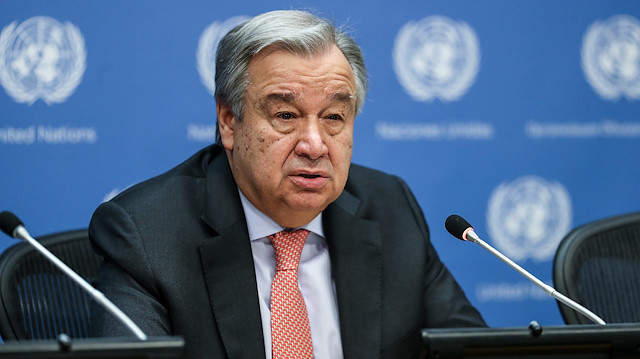EurActiv (6 February 2019)
The European Commission has backed carbon capture and storage (CCS) as a one of the seven key technologies enabling a deep decarbonisation of Europe’s economy by mid-century. But it’s still tangled in bureaucracy when it comes to funding procedures.
Miguel Arias Cañete, the EU commissioner for energy and climate action, gave CCS a shot in the arm when he spoke at the 4th EU-Norway energy conference in Brussels yesterday (4 February).
“CCS is expected to play a vital role in delivering a net-zero emission economy” by 2050, the Spanish commissioner said. “This is why CCS is one of the seven building blocks” of the Commission’s long-term strategy for energy and climate change, he added.
Presented in November last year, just before the UN’s annual climate summit in Katowice, the long-term strategy indeed listed CCS among the seven key technologies that will enable Europe to reach net-zero emissions by 2050.
Despite the rise of cheap wind and solar, CCS will retain “an important role in power generation,” for example, where fossil-fuel based electricity still needs to be produced because of lack of alternative options or as back-up for variable renewable power, Cañete explained.
“Even more importantly, CCS has a crucial role to close the circle for energy-intensive industries where other alternatives to reduce emissions do not exist,” the Commissioner said, citing cement as an example.
“Moreover, if combined with renewable biomass, it could create negative emissions,” he added, saying this could compensate for emissions in other sectors of the economy.
Scientists inject new sense of urgency into CCS
Europe – and the warming planet – has lost precious time in developing carbon capture and storage (CCS), a fledgling technology seen as crucial to decarbonise heavy industry, warned scientists in a new report presented in Brussels last week.
“We must make sure that all low-carbon technologies, including CCS, are further developed and become more widely available in the European Union and globally. Otherwise, we’ll reduce our options for the future,” the Spanish commissioner warned, adding: “We need to continue support research and large-scale demonstration projects.”
Norway could be among the first to receive EU funding in support of CCS. For months, Oslo has lobbied the European Commission to get financial support for its latest project, which involves building a permanent infrastructure off the Norwegian coast to transport and store CO2 offshore, in depleted oil and gas fields.
The main novelty of the Northern Lights project is that the CO2 collected from industrial facilities would be transported to the storage location by boat instead of pipeline, bringing the costs down considerably. Crucially, industrial sites around Europe could join at any moment and ship their CO2 to Norway by boat – a bit like a garbage truck does for household waste.
Norway’s latest CCS revival attempt meets lukewarm EU response
The European Commission has given only cautious backing to a project led by Norway that would see carbon dioxide emissions captured at source from industrial installations and shipped offshore to depleting oil and gas fields where they would be buried more than 1,000 metres underground.
“Not an easy subject,” Commission says
However, the Commission is hesitant to provide funding for CCS, referring to failed past experiences and the long decision-making timeframe when it comes to making the funds available.
“It’s not an easy subject,” admitted Haitze Siemers, a senior official in charge of new energy technologies at the European Commission’s energy directorate, listing the main difficulties of CCS – “public resistance, high costs, and relatively low private investments.”
Siemers also cited “the hangover from the first wave of carbon capture projects between 2009 and 2011” where the Commission burnt its fingers pouring millions of euros of funding into CCS projects that never got off the ground.
“So we’ve got our work cut out for us, I think,” Siemers said. “It’s complicated”.
EU officials said hesitations on funding were also related to the bloc’s long decision-making processes. “It relates to the timing of the innovation fund” appended to the EU’s emissions trading system for CO2, explained Megan Richards, director for energy policy at the European Commission.
The innovation fund will indeed only start accepting calls for proposals in late 2020, after the EU’s new long-term budget for 2021-2027 is approved. And the EU’s decision-making processes cannot be accelerated.
“That’s where we are right now. We can’t go any further than that,” added Siemers, when pressed by EURACTIV to elaborate on the reason for the EU’s indecision. “We’re in the middle of inter-institutional negotiations on the next multi-annual financial framework. We have to give that a little bit of time to come down to earth and see what the outcomes are.”
Doubts about the technology
The EU’s hesitations on CCS are also related to lingering doubts about the technology itself.
In its long-term strategy, the Commission made clear that CCS should be seen as a fall-back option to “tackle remaining CO2 emissions” after all other options are exhausted.
Even worse for CCS fans, the Commission spoke of the technology in the past tense, saying: “Carbon Capture and Storage (CCS) was previously seen as a major decarbonisation option for the power sector and energy intensive industries. Today this potential appears lower, considering the rapid deployment of renewable energy technologies, other options to reduce emissions in industrial sectors and issues concerning social acceptance of the technology itself.”
When he spoke at the 4th EU-Norway energy conference, Cañete put it slightly differently, suggesting CCS should be seen as a last resort solution, once all other options are exhausted.
“CCS is necessary to address emissions that cannot be addressed via other means,” the Spanish EU commissioner told delegates at the conference. “Even more important, we need to develop viable business models,” Cañete continued, saying he was looking with interest at the utilisation of carbon dioxide in areas like plastics manufacturing.
He also challenged oil and gas companies to provide more support for CCS than they are currently doing.
“Oil and gas companies are often seen as being close to the source of the climate change problem. However, if thanks to their engagement, CCS becomes a proven and financially viable solution, they could become part of the solution,” Cañete said.
Final stages of preparation
The European Commission is now “in the final stages” of preparing the ETS innovation fund, he continued, saying the fund “will offer an opportunity to fund big demonstration projects” and breakthrough low-carbon technologies such as CCS.”
Project holders can start submitting applications already in the first quarter of 2020, he indicated. For sure, Norway’s Northern Lights project will be among the first in line.
No comments yet.
-
 UN REPORT SAYS DAESH EVOLVING INTO COVERT NETWORK
Iraq
06.02.2019
UN REPORT SAYS DAESH EVOLVING INTO COVERT NETWORK
Iraq
06.02.2019
- RUSSIA TO BOOST ARMENIAN MILITARY, FIGHTER JETS APPROVED The Caucasus and Turkish-Armenian Relations 06.02.2019
- SENIOR OFFICIALS DOWNPLAY TRUMP PLAN TO KEEP TROOPS IN IRAQ TO ‘WATCH IRAN’ Iraq 06.02.2019
- TURKEY CONDEMNS FRENCH DECLARATION OF ARMENIAN GENOCIDE COMMEMORATION DAY The Caucasus and Turkish-Armenian Relations 06.02.2019
-
 THAILAND FACES TOUGH JOB AS ASEAN CHAIR
Asia - Pacific
06.02.2019
THAILAND FACES TOUGH JOB AS ASEAN CHAIR
Asia - Pacific
06.02.2019
-
25.01.2016
THE ARMENIAN QUESTION - BASIC KNOWLEDGE AND DOCUMENTATION -
12.06.2024
THE TRUTH WILL OUT -
27.03.2023
RADİKAL ERMENİ UNSURLARCA GERÇEKLEŞTİRİLEN MEZALİMLER VE VANDALİZM -
17.03.2023
PATRIOTISM PERVERTED -
23.02.2023
MEN ARE LIKE THAT -
03.02.2023
BAKÜ-TİFLİS-CEYHAN BORU HATTININ YAŞANAN TARİHİ -
16.12.2022
INTERNATIONAL SCHOLARS ON THE EVENTS OF 1915 -
07.12.2022
FAKE PHOTOS AND THE ARMENIAN PROPAGANDA -
07.12.2022
ERMENİ PROPAGANDASI VE SAHTE RESİMLER -
01.01.2022
A Letter From Japan - Strategically Mum: The Silence of the Armenians -
01.01.2022
Japonya'dan Bir Mektup - Stratejik Suskunluk: Ermenilerin Sessizliği -
03.06.2020
Anastas Mikoyan: Confessions of an Armenian Bolshevik -
08.04.2020
Sovyet Sonrası Ukrayna’da Devlet, Toplum ve Siyaset - Değişen Dinamikler, Dönüşen Kimlikler -
12.06.2018
Ermeni Sorunuyla İlgili İngiliz Belgeleri (1912-1923) - British Documents on Armenian Question (1912-1923) -
02.12.2016
Turkish-Russian Academics: A Historical Study on the Caucasus -
01.07.2016
Gürcistan'daki Müslüman Topluluklar: Azınlık Hakları, Kimlik, Siyaset -
10.03.2016
Armenian Diaspora: Diaspora, State and the Imagination of the Republic of Armenia -
24.01.2016
ERMENİ SORUNU - TEMEL BİLGİ VE BELGELER (2. BASKI)
-
AVİM Conference Hall 24.01.2023
CONFERENCE TITLED “HUNGARY’S PERSPECTIVES ON THE TURKIC WORLD"









